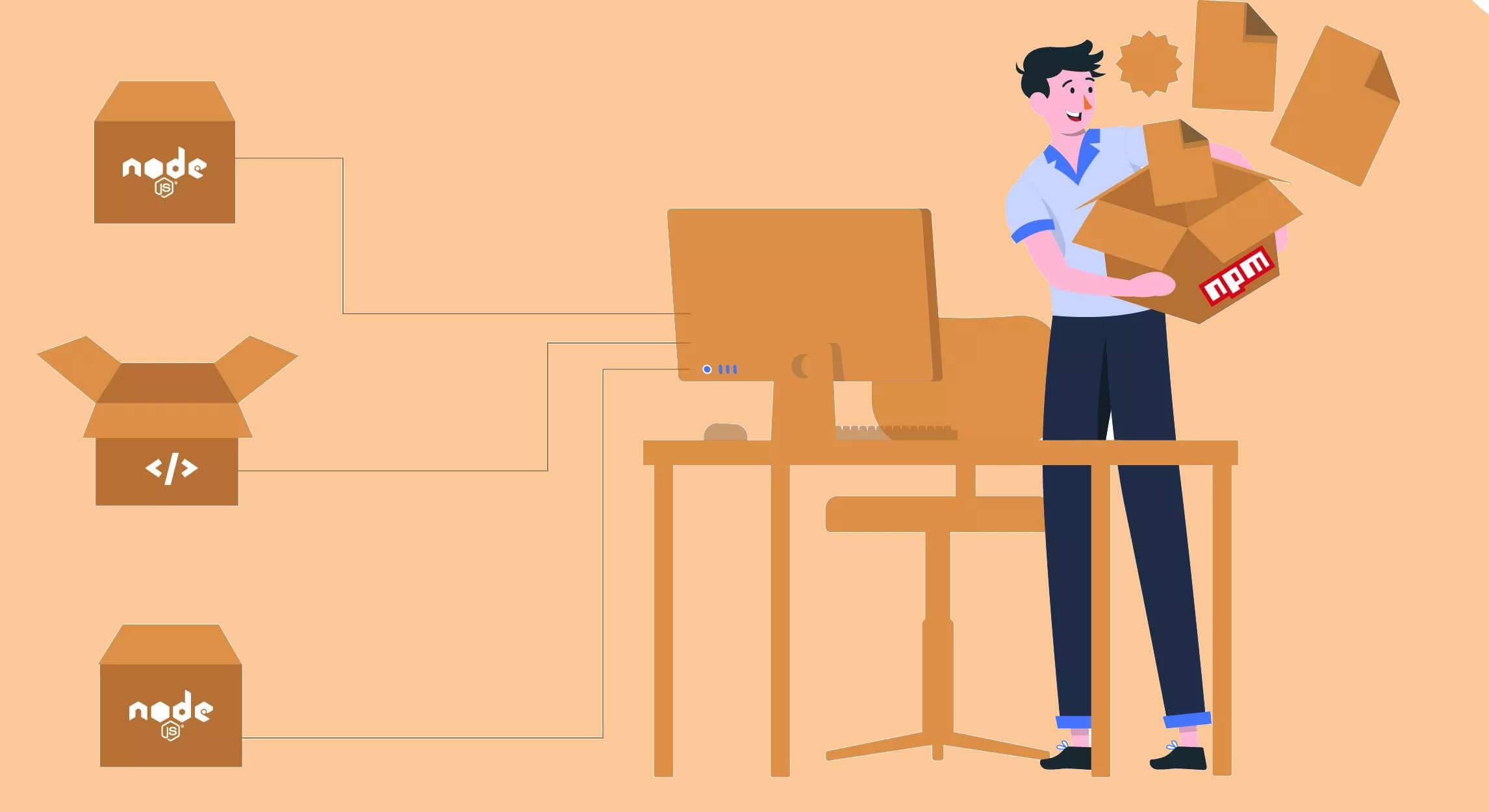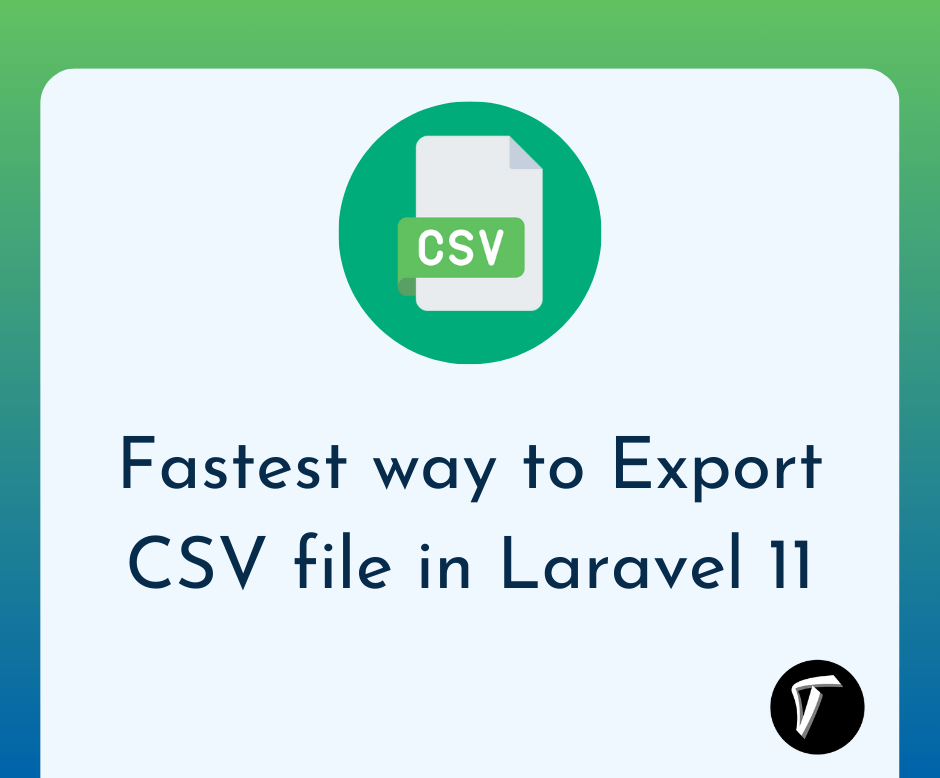Exploring Top 10 NPM Packages for Node.js
Node.js has undoubtedly revolutionized the landscape of web development, offering developers a powerful, efficient, and scalable platform to build server-side applications. One of the key factors contributing to Node.js' popularity is the extensive ecosystem of third-party packages available through the Node Package Manager (NPM).
These packages, designed to simplify and enhance various aspects of Node.js development, have become indispensable tools for developers seeking to boost productivity and create robust applications.
In this article, we embark on a journey to explore the top 10 NPM packages for Node.js. These packages have garnered widespread acclaim in the developer community and have proven their worth by addressing common pain points, streamlining complex tasks, and significantly reducing development time.
Whether you're a seasoned Node.js developer or just starting with the platform, discovering and leveraging these packages can unlock new levels of efficiency and versatility in your projects.
From web application frameworks to data manipulation utilities, from real-time communication solutions to secure authentication libraries, each NPM package we delve into offers unique functionalities and advantages.
We'll discuss how they work, explore their core features, and provide practical examples to illustrate their relevance in real-world scenarios.
As the Node.js ecosystem continues to evolve, keeping abreast of these top-notch NPM packages ensures you're equipped with the most powerful tools in your development arsenal.
So, let's dive into the world of Node.js and discover the incredible potential that awaits us with these top 10 NPM packages.
Exploring top 10 npm packages for node.js, most popular npm package in 2023, most downloaded npm packages in 2023, most used npm packages, best npm packages for node, express npm, multer npm, socket io npm, etc.
Table of Contents:
- Overview of NPM Packages
- Why Use NPM Packages?
- 10 Best NPM Packages to Enhance Your App Development
NPM (Node Package Manager) packages are libraries distributed and shared through the NPM registry. It is the largest software repository, with over 11 million packages in the library.
With the help of packages, developers can leverage existing functionality and codes instead of building them from scratch.
Utilizing NPM packages helps to improve development workflow, upgrade code quality, and deliver excellent applications. NPM empowers to add new functionality, enhance user experience, and stay updated with technological advancements.
The impact of NPM packages on the development workflow is transformative. From improving code quality to accelerating project delivery.
In this journey of exploration, we'll dive into the rich tapestry of NPM packages, uncovering essential gems that can revolutionize how you approach Node.js development.
Let’s understand the importance of NPM packages and understand with following reasons why you should embrace them in your development.

NPM (Node Package Manager) packages are a game-changer for Node.js developers, offering a plethora of pre-built libraries and tools ready for integration into their projects. There are several compelling reasons to use NPM packages.
- NPM packages provide a comprehensive library of pre-built code modules, which can easily integrate with any project.
-
NPM packages promote code reusability, fostering collaboration and sharing among developers.
-
By integrating NPM packages, developers can quickly add new features and functionalities to their applications.
-
NPM packages are actively maintained and updated by the community.
-
NPM packages have an extensive community of developers behind them. Developers can seek support, report bugs, or contribute back to the package if issues arise.
10 Best NPM Packages to Enhance Your App Development
There are millions of NPM packages available but we will see the Top 10 useful packages.
- Express is undeniably the most popular and widely adopted web application framework for Node.js, loved by developers for its elegant simplicity, robustness, and extensive middleware support.
- Originally released in 2010, Express has since become the de facto choice for building web applications and APIs due to its versatility and ease of use.
- It helps to build single-page, multi-page, and hybrid web applications, and with its modular designs.
When to Use Express:
- Manage complex web portal
- Build a RESTful API to serve data to front-end applications
- Express works well in a microservices architecture, where you have multiple small, independent services working together to form a larger application.
- When building real-time applications that require WebSockets or server-sent events, Express can be used in combination with libraries like Socket.io to facilitate real-time communication between clients and the server.
Companies Using Express:
- Netflix
- Uber
Mongoose is an elegant and feature-rich Object Data Modeling (ODM) library for Node.js and MongoDB.
It provides a higher-level abstraction over MongoDB, making it easier for developers to interact with the database using JavaScript objects instead of raw queries.
Mongoose is widely used in Node.js applications to streamline database operations, enforce data validation, and define complex data schemas.
When to Use Mongoose:
- To establish relationships between MongoDB collections
- When data integrity is crucial, Mongoose's built-in validation features shine.
- If you need to execute additional logic before or after certain database operations, Mongoose's middleware and hooks come to the rescue.
- Mongoose is well-suited for developing custom content management systems.
Companies Using Mongoose:
- Yahoo
- Trello
- Medium
Socket.IO is a popular JavaScript library that enables real-time bidirectional communication between web clients (such as browsers) and web servers.
It facilitates real-time data exchange, allowing developers to build interactive, dynamic applications that update in real-time without the need for constant page refreshing.
With Socket. IO support, multiple levels of low-level protocols are eliminated. It automatically manages connection management, fallback mechanisms, and data serialization.
When to Use Socket.IO:
- Applications that need to deliver real-time notifications and alerts
- For streaming applications, like live video or audio broadcasting
- Built application on a gaming platform, IoT, customer support, and sports update
- Develop Node js application with quick data updates and real-time communication
- Applications requiring real-time collaboration, such as collaborative document editing, or collaborative code editing
Companies Using Socket.IO:
- Trello
- Walmart
- Yahoo
Nodemailer is a widely used and versatile JavaScript library for Node.js that simplifies the process of sending emails from server-side applications.
It provides a robust and user-friendly interface for sending transactional emails, notifications, newsletters, and other types of email messages.
You can easily integrate email functionality using Nodemailer into your Node js applications.
When to Use Nodemailer:
- For using simple plaintext and HTML email formats
- sending emails in bulk and running email marketing campaigns
- Nodemailer is widely used to send transactional emails, such as account activation emails, password reset instructions
- Applications that require a notification system can utilize Nodemailer to send real-time notifications to users via email
Companies Using Nodemailer:
- Lyft
- Yelp
- Mailchimp
GraphQL is a powerful and flexible query language for APIs, designed by Facebook in 2012 and later open-sourced in 2015.
It serves as an alternative to traditional REST APIs and has gained significant popularity due to its ability to address common limitations and complexities associated with RESTful architectures.
It is a query language that provides a solution for APIs and runtime for executing queries with existing data.
Using GraphQL, you can integrate numerous services, which act as a middleware layer between the user and the server.
When to Use GraphQL:
- To fetch complex data structures and interactions into a single request
- GraphQL is commonly used in web and mobile applications to fetch and manage data efficiently
- For applications requiring real-time updates and live data
- To minimize bandwidth usage and develop applications with limited network resources
Companies Using GraphQL:
- Shopify
- Coursera
- The New York Times
Multer is a popular middleware for Node.js that simplifies file uploading in web applications. It is specifically designed to handle multipart/form-data, a common data format used for file uploads in HTML forms.
It is used to easily manage file uploads in Node js applications. Also, it allows you to validate, customize, and control file types.
Multer seamlessly integrates with Node.js frameworks like Express, making it an essential tool for developers seeking to enable file uploads in their applications.
When to Use Multer:
- Applications that allow users to send emails with file attachments
- Multer is commonly used to enable users to upload profile pictures or avatars to their accounts in web applications and social platforms.
- Multer is used in applications that allow users to upload files to cloud storage services, such as Amazon S3 or Google Cloud Storage.
- Multer is employed to manage file uploads for image galleries, media libraries, and multimedia-rich applications.
Companies Using Multer:
- Square
- Dropbox
Moment.js (usually referred to as Moment) is a widely used JavaScript library for parsing, manipulating, and formatting dates and times.
It provides a robust and user-friendly set of features to work with dates, making it a popular choice among developers when dealing with date-related operations in their applications.
it supports different time zones and localization, which helps developers to handle time and data operations, particularly to that region and languages.
It is easy to use to get the current time and date in node.js.
When to Use Moment:
- Moment is commonly used to parse dates. And also, helpful for tasks like calculating due dates, scheduling reminders, or calculating intervals between dates
- Applications that deal with multiple time zones, such as event scheduling platforms
- Managing time-related calculations, such as adding or subtracting time intervals
- Moment can be used to validate and manipulate dates before submitting them to the server, ensuring data integrity and consistency
Companies Using Moment:
- Adobe
- Amazon
- GitHub
Axios is a popular JavaScript library used for making HTTP requests from client-side applications.
It is widely adopted for its simplicity, flexibility, and ability to work with both modern JavaScript environments (such as Node.js and browsers) and older environments that lack native fetch support.
Axios offers intuitive APIs for responses and requests, such as PUT, POST, GET, and DELETE. So that, error handling is easier; headers, authentication, and configuration timeouts are convenient.
When to Use Axios:
- Axios is frequently used to interact with RESTful APIs and fetch data from various endpoints in web applications.
- For making HTTP requests from your applications
- Implementing authorization and authentication mechanisms
- Implementing file uploads
- Eliminating pending requests or sending various requests simultaneously
Companies Using Axios:
- Spotify
- Trello
- Medium
Nodemon is a popular utility for Node.js developers that enhances the development workflow by automatically restarting the Node.js application when changes are detected in the source code.
It saves developers the time and effort of manually stopping and restarting the application every time they make code modifications, providing a seamless and efficient development experience.
Nodemon improves the development experience by automatically restarting the server whenever any code changes are identified. Using Nodemon, you are not required to perform a manual test and restart the server whenever any changes occur.
When to Use Nodemon:
- Easy to set up and integrate into the development environment without significant code change or configuration
- Nodemon can be integrated into testing environments, ensuring that test suites are re-executed whenever code changes are made.
- Nodemon is utilized in web application development to ensure that the application stays up-to-date with the latest code changes during development.
- Nodemon is widely used as a development server to automatically restart the application during development, providing a real-time preview of code changes.
Companies Using Nodemon:
- GitHub
- Adobe
Helmet is a widely used Node.js middleware that enhances the security of web applications by setting various HTTP headers to protect against common web vulnerabilities.
It is a crucial component in securing web applications and is recommended for almost all Node.js web projects.
Helmet ensures that your web applications comply with industry regulations and embrace security measures to safeguard against threats. Also, helps secure against risks, such as cross-site request forgery (CSRF) and cross-site scripting (XSS) attacks.
When to Use Helmet:
- Helmet is used to harden the security of web applications by adding an extra layer of protection against common web vulnerabilities.
- During security audits, developers often use Helmet to ensure that necessary security headers are set, reducing potential attack surfaces.
- Helmet helps in protecting sensitive data and user privacy by mitigating risks related to content loading and handling.
- If your applications deal with sensitive data, such as finance or personal details
Companies Using Helmet:
- Twitch
- GitHub
You might also like:
- Read Also: A Beginner's Guide to Using Date and Time in Node.js
- Read Also: Node.js Express CRUD Example With MySQL
- Read Also: How To Generate PDF File In Node JS Using PDFKit
- Read Also: How To Send Email With Attachment Using Node.js








